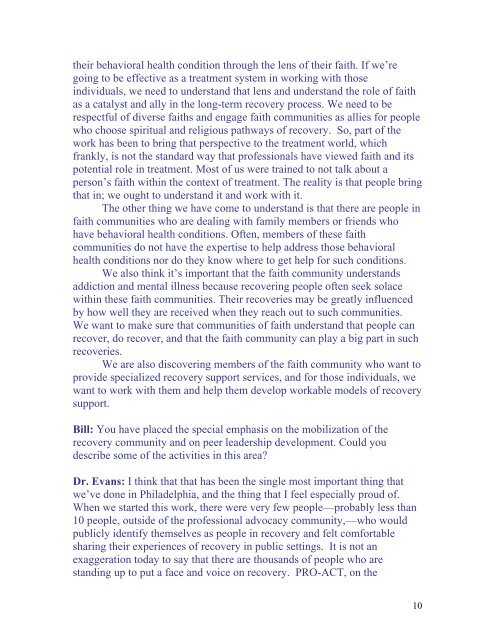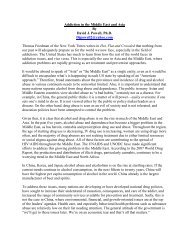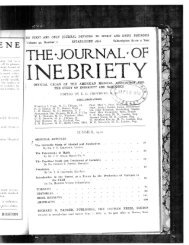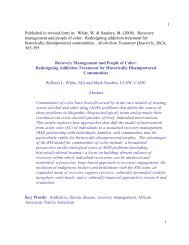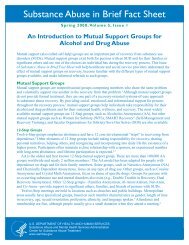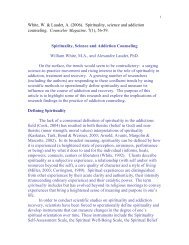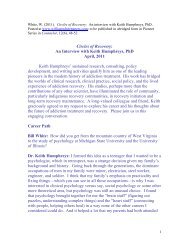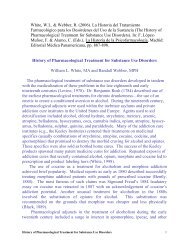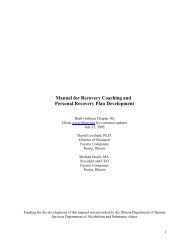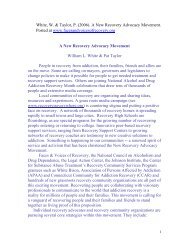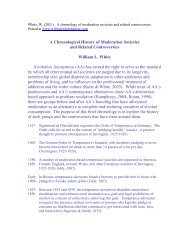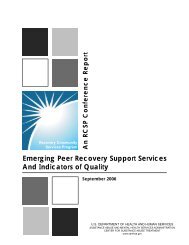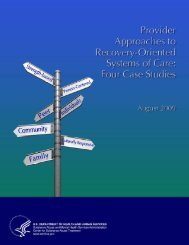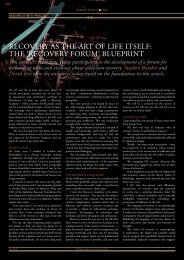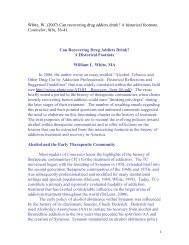An Interview with Arthur C. Evans, Jr., PhD Dr. Arthu - William L. White
An Interview with Arthur C. Evans, Jr., PhD Dr. Arthu - William L. White
An Interview with Arthur C. Evans, Jr., PhD Dr. Arthu - William L. White
- No tags were found...
You also want an ePaper? Increase the reach of your titles
YUMPU automatically turns print PDFs into web optimized ePapers that Google loves.
their behavioral health condition through the lens of their faith. If we’regoing to be effective as a treatment system in working <strong>with</strong> thoseindividuals, we need to understand that lens and understand the role of faithas a catalyst and ally in the long-term recovery process. We need to berespectful of diverse faiths and engage faith communities as allies for peoplewho choose spiritual and religious pathways of recovery. So, part of thework has been to bring that perspective to the treatment world, whichfrankly, is not the standard way that professionals have viewed faith and itspotential role in treatment. Most of us were trained to not talk about aperson’s faith <strong>with</strong>in the context of treatment. The reality is that people bringthat in; we ought to understand it and work <strong>with</strong> it.The other thing we have come to understand is that there are people infaith communities who are dealing <strong>with</strong> family members or friends whohave behavioral health conditions. Often, members of these faithcommunities do not have the expertise to help address those behavioralhealth conditions nor do they know where to get help for such conditions.We also think it’s important that the faith community understandsaddiction and mental illness because recovering people often seek solace<strong>with</strong>in these faith communities. Their recoveries may be greatly influencedby how well they are received when they reach out to such communities.We want to make sure that communities of faith understand that people canrecover, do recover, and that the faith community can play a big part in suchrecoveries.We are also discovering members of the faith community who want toprovide specialized recovery support services, and for those individuals, wewant to work <strong>with</strong> them and help them develop workable models of recoverysupport.Bill: You have placed the special emphasis on the mobilization of therecovery community and on peer leadership development. Could youdescribe some of the activities in this area?<strong>Dr</strong>. <strong>Evans</strong>: I think that that has been the single most important thing thatwe’ve done in Philadelphia, and the thing that I feel especially proud of.When we started this work, there were very few people—probably less than10 people, outside of the professional advocacy community,—who wouldpublicly identify themselves as people in recovery and felt comfortablesharing their experiences of recovery in public settings. It is not anexaggeration today to say that there are thousands of people who arestanding up to put a face and voice on recovery. PRO-ACT, on the10


